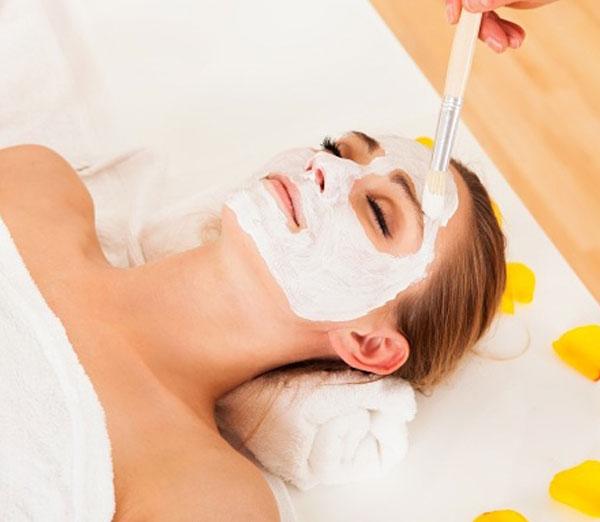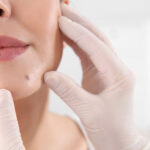Chemical peels are one of the most trusted non-invasive skincare treatments available today. They work by exfoliating the top layers of the skin using specially formulated chemical solutions, which stimulate cell turnover and collagen production. This process helps reveal smoother, clearer, and healthier-looking skin beneath.
Many individuals opt for Chemical Peels in Dubai to improve skin texture, address uneven tone, and target imperfections like acne scars or fine lines. With the city’s arid climate and increased sun exposure, chemical peels are particularly effective for residents looking to rejuvenate their skin.
How Chemical Peels Work
Exfoliation and Skin Renewal
At the core of every chemical peel is the process of controlled exfoliation. The peel solution dissolves the bonds that hold dead skin cells together. Once those cells are shed, the body signals the skin to regenerate, leading to the emergence of new, healthy cells that are more uniform in tone and texture.
Depth of Peels and Skin Results
Chemical peels come in three types: superficial, medium, and deep. Each type penetrates the skin at different depths, affecting the outcome and recovery time.
| Type of Peel | Depth of Penetration | Best For |
|---|---|---|
| Superficial Peel | Epidermis only | Mild texture issues, dull skin |
| Medium Peel | Upper dermis | Fine lines, pigment irregularities |
| Deep Peel | Mid to lower dermis | Deep wrinkles, significant scarring |
The choice of peel depends on the skin concern and desired results. Regardless of depth, all peels initiate a healing response that enhances skin smoothness and texture.
Skin Texture Issues Addressed by Chemical Peels
Acne and Acne Scarring
Chemical peels help unclog pores, reduce inflammation, and remove surface bacteria that contribute to acne. In cases of post-acne scarring, particularly superficial scars, peels improve skin texture by promoting the growth of healthy skin layers.
Fine Lines and Wrinkles
By accelerating cell turnover and encouraging collagen production, peels reduce the appearance of fine lines. Over time, the skin becomes firmer, more elastic, and noticeably smoother.
Sun Damage and Hyperpigmentation
Chemical peels effectively lighten sun spots, melasma, and other forms of hyperpigmentation. These peels work by breaking down excess melanin in the skin and encouraging even distribution of pigment in new skin cells.
| Skin Texture Concern | How Chemical Peels Help |
|---|---|
| Acne | Clears pores, reduces inflammation |
| Acne Scars | Smoothens uneven surface |
| Fine Lines | Stimulates collagen, reduces depth |
| Uneven Tone | Promotes even pigmentation |
| Sun Damage | Reduces dark spots and dryness |
Benefits of Chemical Peels for Skin Texture
Smoother Skin Surface
After a peel, the outer layer of rough, uneven skin is replaced by a smoother layer. This is especially beneficial for those with bumpy or grainy skin caused by congestion or dead skin build-up.
Enhanced Radiance
As dead skin cells are removed, the underlying healthy skin appears more luminous. Chemical peels can significantly improve the dull appearance often caused by pollution, dryness, or aging.
Improved Absorption of Skincare Products
By eliminating the layer of dead cells, the skin becomes more receptive to serums, moisturizers, and treatments. This amplifies the results of your daily skincare regimen.
Frequency and Customization of Chemical Peels
How Often Should You Get a Peel?
The frequency of chemical peels depends on the type of peel and your skin type. Superficial peels can be done every 3 to 4 weeks, while medium peels may be spaced every 4 to 6 months. Deep peels are usually done once and require long-term results with significant downtime.
Customization Options
Professionals tailor chemical peel formulas to target individual skin issues. For example:
- Glycolic acid is excellent for dry or aging skin.
- Salicylic acid works best for oily or acne-prone skin.
- Lactic acid is a gentle option for sensitive skin.
Pre- and Post-Treatment Care for Best Results
Preparing Your Skin
Before getting a chemical peel, it’s essential to avoid sun exposure, waxing, and retinoids for at least a week. Preparing the skin with a gentle cleanser and hydrating products also helps minimize irritation.
Aftercare Tips
Post-treatment care is crucial to achieving smoother texture and avoiding complications:
- Use sunscreen regularly
- Avoid picking or peeling flaking skin
- Keep skin moisturized with a recommended gentle cream
- Follow specific skincare guidelines provided after the session
Are Chemical Peels Safe for All Skin Types?
Chemical peels can be effective for most skin types; however, deeper peels may pose a higher risk for darker skin tones due to the potential for hyperpigmentation. Superficial and customized peels are generally safe and beneficial for sensitive and melanin-rich skin when administered properly.
FAQs
What skin issues benefit most from chemical peels?
Chemical peels are effective for acne, acne scars, dull skin, fine lines, sun damage, and uneven skin tone.
Are chemical peels painful?
Most people experience mild tingling or stinging during the procedure, especially with deeper peels. Discomfort is usually temporary and manageable.
Can chemical peels be combined with other treatments?
Yes, chemical peels can be part of a larger skincare plan and may be combined with facials, microneedling, or laser treatments for improved results.
How soon can I wear makeup after a peel?
It’s best to wait 24–48 hours after a superficial peel. For deeper peels, wait until the skin has completely healed to avoid irritation or infection.
Will I see immediate results?
You may notice brighter and smoother skin after just one session, but visible improvement in texture usually requires multiple treatments over time.
Conclusion
Chemical peels play a significant role in improving skin texture by removing dead cells, stimulating cell regeneration, and encouraging collagen production. Whether you’re dealing with acne scars, dullness, or fine lines, chemical peels offer a customizable and effective solution that caters to various skin needs.
































